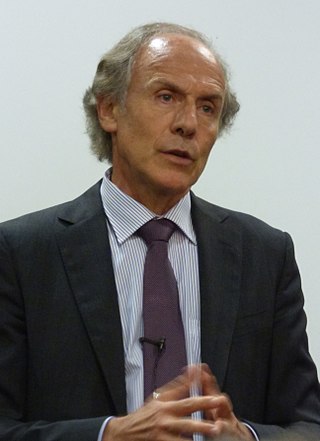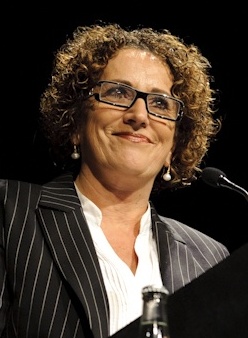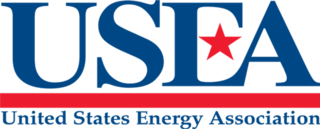
The Australian Chamber of Commerce and Industry (ACCI) is Australia's largest and most representative business association, comprising state and territory chambers of commerce and national industry associations. ACCI represents Australian businesses of all shapes and sizes, across all sectors of the economy, and from every corner of the country.

Allan James Asher is an Australian lawyer, consumer advocate and campaigner.

Alan Simon Finkel is an Australian neuroscientist, inventor, researcher, entrepreneur, educator, policy advisor, and philanthropist. He was Australia’s Chief Scientist from 2016 to 2020. Prior to his appointment, his career included Chancellor of Monash University, President of the Australian Academy of Technology and Engineering (ATSE), and CEO and founder of Axon Instruments, and CTO for the electric car start-up Better Place Australia.

The Economic Research Institute for ASEAN and East Asia or ERIA is an international organization established in Jakarta, Indonesia in 2008 by a formal agreement among Leaders of 16 countries in the East Asian region to conduct research activities and make policy recommendations for further economic integration in the East Asia. ERIA works very closely with both the ASEAN Secretariat and 16 Research Institutes to undertake and disseminate policy research under the three pillars, namely “Deepening Economic Integration”, ”Narrowing Development Gaps”, and “Sustainable Development” and provide analytical policy recommendations to Leaders and Ministers at their regional meetings. ERIA provides intellectual contributions to East Asian Community building and serves as a Sherpa international organization. ERIA Ranks 9th among the world's "Top International Economics Think Tanks" according to the 2020 Global Go To Think Tanks Index Report conducted by the University of Pennsylvania.

Chandrajit Banerjee is the Director General of the Confederation of Indian Industry (CII) and member of a number of government advisory bodies at national and international levels. As DG of CII, he is responsible for leading and contributing to many policy level dialogues and discussions to enhance the competitiveness of India Inc and towards the development of India.

Engineers Australia (EA), known formally as the Institution of Engineers, Australia, is an Australian professional body and not-for-profit organisation whose purpose is to advance the science and practice of engineering for the benefit of the community. Engineers Australia is Australia's recognized organization for accreditation of professional engineering qualifications under the Washington Accord. As of 2022, EA has 115,000 members, which includes 31,000 students.

Energy in Australia is the production in Australia of energy and electricity, for consumption or export. Energy policy of Australia describes the politics of Australia as it relates to energy.

Frank Nnaemeka Nweke Jr is a Nigerian Politician, Entrepreneur, Teacher and Social Innovator. He is a two-time Federal Minister in Nigeria and former Director General, Nigerian Economic Summit Group (NESG). He is currently a member of the All Progressives Grand Alliance (APGA) and vied for the position of Governor of Enugu in the 2023 Nigerian General Election, upon emerging the party candidate at the primary election in May 2022.
The Australian Pipelines and Gas Association (APGA) is an Australian industry association representing Australia’s high-pressure transmission pipeline sector, with a principal focus on long-distance oil and gas transmission, but also including transportation of other products such as water, slurry and carbon dioxide.

Paul Sinclair Heithersay is a public servant employed by the Government of South Australia. He is the chief executive of the Department for Energy and Mining. He was appointed to this role by the then recently elected Liberal government in June 2018.
UCL Australia was an international campus of the University College London, located on Victoria Square in Adelaide, South Australia. It had three parts: the School of Energy and Resources (SERAus), the International Energy Policy Institute (IEPI) and a branch of UCL's Mullard Space Science Laboratory. UCL Australia described its university community as "welcoming, dynamic and influential." The campus closed in December 2017.
Ken Baldwin is professor of physics at the Australian National University (ANU). He is the deputy director of the Research School of Physics and the director of the [http://energy.anu.edu.au/ ANU Energy Change Institute].

Helen Veronica Szoke is the former chief executive of Oxfam Australia, and a commentator and advocate on issues of human rights, poverty, inequality, gender and race discrimination. Throughout her career, she has held leadership roles across the health sector, human rights and public policy, and international development sector.

The United States Energy Association (USEA) is an association of public and private energy-related organizations, corporations, nonprofits, educational institutions, think tanks and government agencies. USEA works with the U. S. Department of Energy, U.S. Department of State and the U.S. Agency for International Development (USAID) to make energy accessible throughout the world by focusing on the viability of electricity, coal, oil, gas, nuclear and renewables. The organization also serves as a resource for the domestic and global energy industry, hosting a variety of events year-round that inform on current energy policy, challenges and technologies. Through its member organizations, USEA shares energy best practices, executes projects, and coordinates research domestically and internationally.
Trevor Charles St Baker is an Australian businessperson with interests in power station and fuel supply development. He is director of the St Baker Energy Trust and chair of Sunset Power International. He is founder and deputy chair of ERM Power Limited.
National Energy Guarantee (NEG) was an energy policy proposed by the Turnbull government in late 2017 to deal with rising energy prices in Australia and lack of clarity for energy companies to invest in energy infrastructure. The policy specifically targets energy companies in the National Electricity Market and large energy users to have a reliability obligation as well as emissions reduction obligations.
Robert L. Pritchard is a Sydney-based lawyer active in the energy and resources sector. He is managing director of ResourcesLaw International and executive director of the Energy Policy Institute of Australia.
The Congressional Hispanic Caucus Institute (CHCI) is a Hispanic nonprofit and nonpartisan 501(c)(3) leadership development organization established in 1978 by organizing members of the Congressional Hispanic Caucus (CHC) and is headquartered in Washington, D.C.

Thailand Textile Institute is a not-for-profit entity under the Foundation for Industrial Development (FID), which itself falls under the Ministry of Industry (Thailand).
Kerri Gaye Hartland is the Director-General of the Australian Secret Intelligence Service (ASIS). She was formerly an Australian public servant for 30 years, before joining the private sector. She was the first female deputy director-general of Australian Security Intelligence Organisation (ASIO) and took up the position of secretary of the Australian Government Department of Employment, Skills, Small and Family Business in January 2017.











